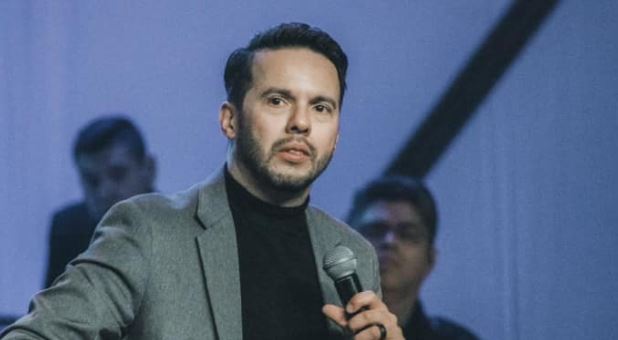Sam Rodriguez: We Have to Put the Fear of God in Governors Who Shut Down Churches
Although Rev. Samuel Rodriguez is advising churches to create a plan to safely reopen, he’s also encouraging them to stand their ground for their rights.
Rodriguez tells One America News that in the beginning of the COVID-19 pandemic in the U.S., he began encouraging churches to willingly close their doors and offer their services online. But it’s another matter entirely, he argues, for the government to force churches to close.
“Ladies and gentlemen, we don’t sacrifice our constitutional rights on the altar of a pandemic or on the altar of a crisis,” he says. “We can’t sacrifice truth on the altar of political expediency or even a crisis. We understand, as American citizens, we have responsibilities collectively, but the idea that you can shut down a church crossed the line.”
Yet Rodriguez says it’s still important that pastors take the pandemic seriously so no one gets unnecessarily sick.
“I was advocating for pastors to voluntarily go online,” he says. “And right now, I am exhorting and encouraging pastors to phase in maybe 25% of building capacity for the first two weeks, 50% for the second month, 75% for the third month. By the fourth month, 100% capacity. With all things being equal, with all CDC recommendations fully in place, social distancing in the first two or three phases.”
But how can the church make sure this doesn’t happen again? Rodriguez, who is working with the Heritage Foundation and President Donald Trump’s task force to reopen churches in America, says it hinges on building a “legal firewall.”
“We really have to build a legal firewall and we have to put, legally speaking—now let me use colloquialisms or metaphors–we have to put the fear of God in governors who attempt to cross the line and attempt to shut down churches in perpetuity,” he says. “That’s outrageous. Let me give you one more example. President Trump, in his three phases, included churches in phase 1. The governor of California—God bless him—included churches in phase 3. So churches, hypothetically, can’t come back online, meaning physical gatherings, until sporting events and big concerts. I argue that the spiritual health of the nation is as equally and essentially important as the mental and economic health.”
















































